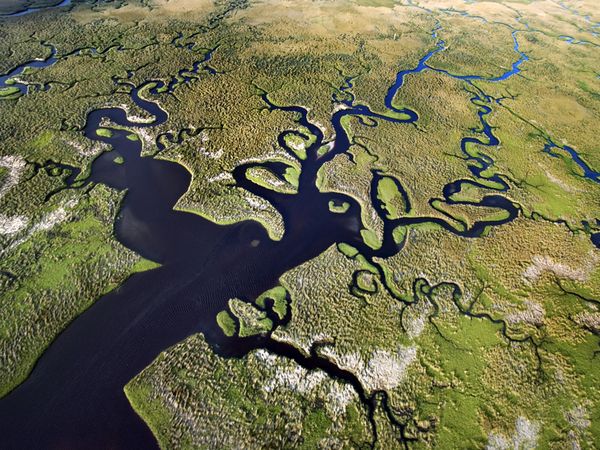Now a proposed law could hack through regulatory delays and speed up the flow of federal money needed to fix the fading River of Grass and boost South Florida’s drinking water supply.
A bipartisan team of Florida congressmen proposes removing congressional roadblocks to building reservoirs, pollution filtering marshes and other Everglades restoration projects. The goal is to allow long-planned, construction-ready Everglades projects to proceed, instead of having to wait years for additional congressional approval.
“That would help us speed up the Everglades restoration,” said Sen. Bill Nelson, D-Fla. “You wouldn’t have to wait until the next big water bill.”
Nelson teamed with U.S. Rep. Alcee Hastings, a Democrat who represents portions of Broward and Palm Beach counties, and U.S. Rep. Mario Diaz-Balart, a Miami-Dade County Republican, to propose the Everglades for the Next Generation Act. Supporters say the move could jump start slow-moving Everglades restoration, if a politically polarized Congress can agree.
“Things just aren’t getting done in Washington right now,” said Eric Draper, executive director of the environmental group Audubon Florida. “Getting a bill passed is frankly going to be an uphill fight.”
Decades of drainage and pollution from South Florida development and farming have already claimed half of the Everglades – a subtropical wilderness that includes sawgrass marshes, tree islands and mangrove coasts.
The state and federal government in 2000 agreed to share the cost of a rescue plan that calls for cleaning up water pollution and restoring more water flows to the Everglades. The goal is to both preserve what remains of the Everglades and bolster the drinking water supply for South Florida’s growing population.
Taxpayers so far have spent about $3.2 billion on what’s estimated to grow to a $16 billion Everglades restoration bill. Construction problems, political fights as well as funding delays have bogged down Everglades restoration.
Federal funding hasn’t kept pace with state spending on Everglades restoration, with Congress sometimes waiting seven years to approve the money needed to keep dozens of South Florida construction projects going.
“It slows things down. It makes projects more expensive,” Draper said.
The proposed bill seeks to speed that up by giving the Army Corps of Engineers the authority to start building after an initial OK from Congress, instead of having to come back for another vote.
“By reducing the red tape after each project [plan] is completed, we can help the Army Corps continue preserving this natural treasure,” Diaz-Balart said in a May 25 statement about the proposed bill. “We must do everything we can to protect it for future generations.”
Projects that could be among the first to benefit from the proposed law include plans to build more reservoirs and other water storage north and south of Lake Okeechobee. The idea is to hold onto more of the rainwater now drained out to sea for flood control. Instead, the water would be cleaned up and sent south to replenish the Everglades.
In addition, the legislation could make it easier to adjust Everglades restoration plans.
For example, in response to Lake Okeechobee draining fueling toxic algae blooms along the East Coast, the Florida Legislature this year approved a $1.5 billion plan to team with the federal government to build a reservoir south of the lake. The idea is to avoid future algae outbreaks by sending excess lake water to the reservoir, where it could be cleaned up and then used to replenish the Everglades. Federal approval is still needed to get that reservoir started.
Approving the new law would make “sure that [federal] cash flow isn’t interrupted,” said Dawn Shirreffs of the Everglades Foundation, which backs the bill. “We have seen broad support for Everglades restoration in Congress,” Shirreffs said. “We are hopeful.”
Army Corps of Engineers spokesman John Campbell declined comment on the proposed legislation. Progress is being made on Everglades restoration, he said.
“We are trying to fix the plumbing on a [drainage] system that was designed in the ’50s and ’60s for flood control – make the system, generally, more environmentally friendly,” Campbell said. “This is a huge undertaking.”
Nelson said the Everglades can’t afford to keep waiting five to seven years between federal funding approvals needed for projects to clean up water and move it south.
“It’s been a 20-year project thus far and it’s going to take us another 20 years, but we are definitely moving in the right direction,” Nelson said.
© 2017 the Sun Sentinel (Fort Lauderdale, Fla.), Andy Reid. Distributed by Tribune Content Agency, LLC.


